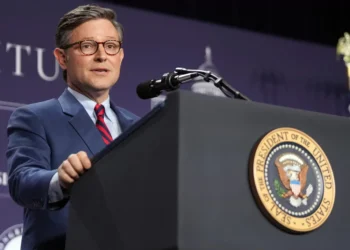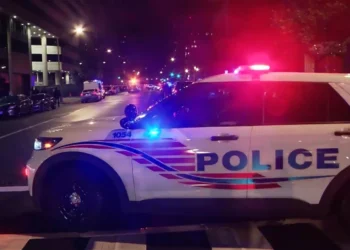Solicitor General D. John Sauer filed an appeal to the Supreme Court on Wednesday, asking the justices to pause a pair of orders from lower courts requiring DOGE to produce documents and take the deposition of U.S. DOGE Service Acting Administrator Amy Gleason. Sauer continued the argument the Trump administration made in lower courts that DOGE is a presidential advisory board and therefore not subject to FOIA, citing prior court precedent.
He claimed the “order clearly violates the separation of powers” between branches of government and unlawfully subjected a “presidential advisory body to intrusive discovery” and threatened “the confidentiality and candor of its advice.”
“Compliance will hamstring [DOGE] in carrying out its mission, and the burdens of responding to these roving requests, forcing Administrator Gleason to be deposed, and intruding upon sensitive communications of advisors within the Executive Office of the President are quintessentially irreparable,” Sauer wrote in the filing to the high court.
“This Court has rejected similar fishing expeditions into sensitive executive-branch functions, and it should not allow this one to proceed,” Sauer added.
He claimed the “sweeping, intrusive discovery” ordered by a federal district court would effectively give the group seeking the records under FOIA, the left-leaning Citizens for Responsibility and Ethics in Washington, a legal win. That’s because CREW would receive the type of access to the type of internal information it is seeking in the course of determining whether DOGE is even subject to FOIA in the first place, Sauer argued.
The current timeline set by the district court would require documents to be produced by DOGE by June 3 and for Gleason to sit for a deposition on June 13, per the Trump administration’s emergency filing with the Supreme Court.
SUPREME COURT SO FAR FOCUSING ON PROCEDURE OVER SUBSTANCE IN IMMIGRATION CASES
FOIA legal cases do not typically include discovery and depositions. “It is rare in the circumstances at issue,” Judicial Watch President Tom Fitton told the Washington Examiner.
The U.S. District Court for the District of Columbia ordered that “limited discovery” may proceed in the case to determine if the agency is required to fulfill FOIA requests. A federal appeals court denied the Trump administration’s request for a pause on the order.

















